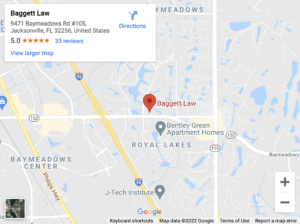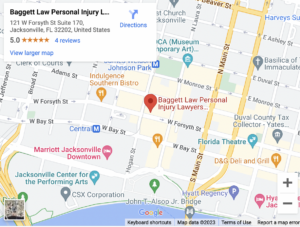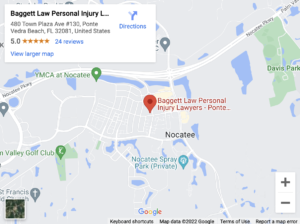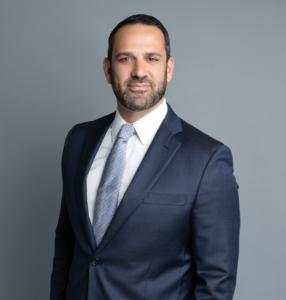
No two personal injury cases are exactly alike. Nevertheless, certain similarities do persist across a wide range of cases.
There are a hundred different ways that a personal injury lawyer can help you win your claim, all the way from your initial injury to settlement or trial.
Your Injury and the Immediate Aftermath
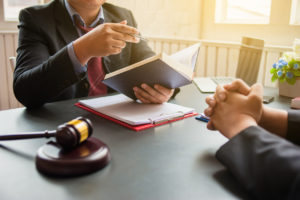
There are certain actions you need to take in the immediate aftermath of an injury accident to bolster your claim:
- Call 911.
- Remain at the scene of the accident until the police arrive. This is generally required by law if you are in a car accident unless you leave by ambulance.
- Get the other driver’s contact and insurance details (for car accidents).
- Take down the contact details of any witnesses.
- Cooperate with the police if they arrive at the scene of the accident.
- File a written report of the accident if appropriate. This might mean a report to your employer if the accident is work-related, for example, or to a business if you suffer a slip and fall accident on the premises.
- Photograph the scene of the accident and any injuries or property damage.
- Notify your insurance company, even if you don’t expect them to pay your claim. Even your health insurance company might require this by the terms of your policy.
You might need to take other actions as well. If you are seriously injured, of course, you might not be able to take any of these actions.
Seek Immediate Medical Attention
Seek immediate medical attention even if you are not sure whether you are injured because many injuries generate late-breaking symptoms. Medical records are among the most credible forms of evidence. Failure to seek prompt medical treatment will call into question the severity of your injuries, and it may give the opposing party an opening to claim that your injuries were pre-existing.
The Initial Consultation
Almost every personal injury lawyer offers free initial consultations, either in person or by telephone. At your initial consultation, the lawyer will ask you questions to determine whether your claim is worth pursuing. You are under no obligation to hire the lawyer.
The Preliminary Investigation
Your lawyer (if you have one) will conduct a preliminary investigation of your claim. This might include:
- Questioning you and any other witnesses to the accident;
- Gathering your medical records;
- Taking any of the steps outlined above that you couldn’t take because of your injuries (photographing the scene of your accident, for example); and
- Collecting other evidence, such as CCTV footage of the accident or the contents of a truck’s event data recorder.
The exact procedure of your lawyer’s preliminary investigation will depend on the details of your case.
The Demand Letter to the Insurance Company
Your lawyer will send a demand letter to the opposing party, typically an insurance company. The letter will outline your claim and demand compensation. It may or may not include an exact dollar amount of damages. This letter kicks off the negotiation process.
Settlement Negotiations: A Game of Legal Ping-Pong
At this point, the opposing party might reject your claim, or it might issue a counteroffer. If it issues a counteroffer, your lawyer might respond with an argument or with a counter-counteroffer. This back-and-forth process will continue until you reach a settlement or until negotiations reach an impasse.
Filing a Lawsuit
One way to break a negotiation stalemate is to file a lawsuit. Filing a lawsuit beats the statute of limitations deadline and shows the opposing party you mean business. Your lawyer must draft very specific documentation to file a lawsuit, and a single error could result in disastrous consequences. Filing a lawsuit doesn’t necessarily mean there will be a trial, as cases can still settle afterward.
The Pretrial Discovery Process
The pretrial discovery process is a court-supervised process of evidence gathering. Both sides will gain access to the following legal tools:
- Depositions: Out-of-court, under-oath testimony from a witness. You can subpoena a witness to compel testimony.
- Interrogatories: Written questions that the opposing party must answer under oath.
- Demands for production. Requests for access to physical evidence-–an examination of DNA evidence, for example, or an independent medical examination of your injuries.
- Requests for admissions: Each party might ask the other party to admit to certain facts that the other party doesn’t want to bother proving. This simplifies the case for both parties.
You can ask the court to sanction the opposing party if they refuse to cooperate with pretrial discovery.
Pretrial Motions
Depending on the circumstances, you can file certain pretrial motions, including:
- A Motion to Dismiss (which would end the case);
- A Motion to Suppress (resulting in the suppression of illegal evidence); or
- A Motion for a Change of Venue (resulting in moving the trial to another court in another location).
A “motion” is simply a request for the court to do something.
Continuing Negotiations
Once the pretrial discovery process is complete, the parties’ relative bargaining positions might have tilted in favor of one or the other. This is likely to motivate the parties to resume negotiations.
Settlement
You will need a carefully drafted settlement agreement to protect your interests if you reach a negotiated settlement. Typically, your lawyer will draft the agreement or will at least go over its terms with the other side. One of its terms will certainly be that once the opposing party pays the settlement amount, you can no longer contest the claim, no matter what evidence later emerges.
Mediation or Arbitration
Courts often pressure litigating parties to seek third-party mediation of their dispute to reduce the court’s busy docket. Alternatively, the parties may agree upon a “rent-a-judge” who will resolve the dispute through arbitration.
Trial
A trial is a last resort for most parties because going to trial takes a lot of time and money. It might also generate bad publicity. Trials are unpredictable because different juries often see the same facts in different ways. Even judges can be unpredictable. Nevertheless, sometimes trial is a good idea.
Appeal
Although you can appeal a personal injury judgment, most parties don’t bother. Even when they do, they lose most of the time because higher courts tend to defer to the judgment of lower courts.
Special Case: Florida Car Accident Claims
Florida car accident claims work differently than other personal injury claims, and they work differently than car accident claims do in most other states. Following is a description of two of their distinctive features:
- Florida car accidents are no-fault. This means that unless your injuries are “serious,” you must look to your own Personal Injury Protection (PIP) insurance for reimbursement, and you cannot sue the at-fault driver. This means you cannot claim non-economic damages, which is a significant limitation.
- Even if your injuries qualify as “serious” under Florida law (permanent disfigurement, for example), Florida does not require most motorists to purchase bodily injury liability insurance. This means there may be no money to pay your claim even if you win a lawsuit against the at-fault driver.
A good lawyer might be able to find a way around the stringent limitations of Florida’s no-fault auto insurance system. They might find a third party to sue, for example.
Do You Need the Assistance of a Jacksonville Personal Injury Lawyer?
It is possible and even desirable to handle some claims without the assistance of a lawyer. If your claim is large and complex enough, however, you’re going to need a lawyer to keep from getting ripped off by the insurance company.
Under the contingency fee system, your Jacksonville personal injury lawyer works for a percentage of your recovery. That puts you and your lawyer on the same side because the more money you make, the more money your lawyer makes.
Contact our personal injury attorneys at Bagget Law Personal Injury Lawyers for more information at (904) 396-1100.


